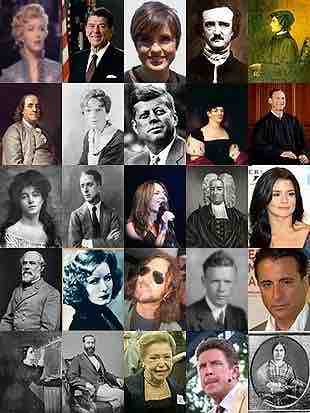Sociocultural factors are the larger-scale forces within cultures and societies that affect the thoughts, feelings, and behaviors of individuals. These include forces such as attitudes, child-rearing practices, discrimination and prejudice, ethnic and racial identity, gender roles and norms, family and kinship structures, power dynamics, regional differences, religious beliefs and practices, rituals, and taboos. Several subfields within psychology seek to examine these sociocultural factors that influence human mental states and behavior; among these are social psychology (discussed in another section), cultural psychology, and cultural-historical psychology.
Cultural Psychology
Cultural psychology is the study of how psychological and behavioral tendencies are rooted and embedded within culture. The main tenet of cultural psychology is that mind and culture are inseparable and mutually constitutive, meaning that people are shaped by their culture and their culture is also shaped by them.
A major goal of cultural psychology is to expand the number and variation of cultures that contribute to basic psychological theories, so that these theories become more relevant to the predictions, descriptions, and explanations of all human behaviors—not just Western ones. Populations that are Western, educated, and industrialized tend to be overrepresented in psychological research, yet findings from this research tend to be labeled "universal" and inaccurately applied to other cultures. The evidence that social values, logical reasoning, and basic cognitive and motivational processes vary across populations has become increasingly difficult to ignore. By studying only a narrow range of culture within human populations, psychologists fail to account for a substantial amount of diversity.

White American culture
Populations that are Western, educated, and industrialized tend to be overrepresented in psychological research. By studying only a narrow range of human culture, psychologists fail to account for a substantial amount of variation.
Cultural psychology is often confused with cross-cultural psychology; however, it is distinct in that cross-cultural psychologists generally use culture as a means of testing the universality of psychological processes, rather than determining how local cultural practices shape psychological processes. So while a cross-cultural psychologist might ask whether Jean Piaget's stages of development are universal across a variety of cultures, a cultural psychologist would be interested in how the social practices of a particular set of cultures shape the development of cognitive processes in different ways.
Vygotsky and Cultural-Historical Psychology
Cultural-historical psychology is a psychological theory formed by Lev Vygotsky in the late 1920s and further developed by his students and followers in Eastern Europe and worldwide. This theory focuses on how aspects of culture, such as values, beliefs, customs, and skills, are transmitted from one generation to the next. According to Vygotsky, social interaction—especially involvement with knowledgeable community or family members—helps children to acquire the thought processes and behaviors specific to their culture and/or society. The growth that children experience as a result of these interactions differs greatly between cultures; this variance allows children to become competent in tasks that are considered important or necessary in their particular society.